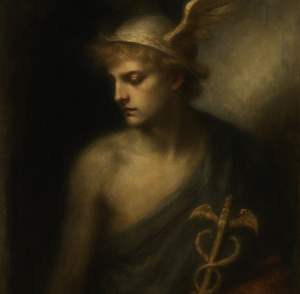What ancient intellect teaches us about making aligned, conscious choices, and what we can learn about therapy decision-making clarity.
When life presents complex choices and internal conflict, especially during periods of coping with life transitions, many people seek therapy for decision-making clarity. At Luceris, we help individuals navigate confusion by aligning their choices with deeper values, because clarity is not just about knowing what to do, but knowing why. However, you’ve thought through every angle. You’ve asked for advice. You’ve second-guessed yourself, then third-guessed yourself. And yet, you still don’t feel clear.
This is one of the most common experiences clients bring to therapy: the search for clarity in the face of internal conflict. Do I stay or go? Speak up or let it go? Start over or stay the course? These are not simple questions. And clarity, despite how it’s often portrayed, is not always a sudden lightbulb moment or a flash of insight that makes everything make sense.
At Luceris, we believe clarity is something deeper, and more enduring. Not just an answer, but a kind of knowing that aligns thought, feeling, and value.
To help explore this, we turn to a surprising guide: the Greek goddess Athena.
The Symbolism of Athena: Strategy, Not Just Wisdom
Athena was not a goddess of abstract knowledge or intellectual perfection. She was the goddess of strategic wisdom, the kind that balances logic with intuition, patience with precision, restraint with timing. She appeared fully formed and armored, stepping into conflict not with brute force but with foresight. Unlike other deities driven by impulse or vengeance, Athena’s strength was in her ability to see clearly before acting boldly.
In psychological terms, we might call this executive function, self-regulation, or value-guided behavior. But in the therapeutic journey, what Athena represents is the capacity to respond to life from a place of grounded clarity, especially when emotions are high and the stakes are personal.
The Myth of Decision-Making Clarity as Certainty
Many people come to therapy looking for certainty: the absolute, right, best answer. But what often keeps us stuck is the very idea that such certainty exists. We wait for the perfect feeling of confidence before making a move. We assume we’re not ready until the anxiety disappears. But clarity is rarely the absence of discomfort. It’s the ability to move forward in the presence of it, when that movement reflects what matters most to us.
Clarity is not about having all the answers. It’s about having an answer that aligns with your deeper self, even when fear or doubt is still in the room.
What Does Decision-Making Clarity Actually Look Like?
In therapy, we often guide clients through three overlapping processes when they feel unclear:
In Acceptance and Commitment Therapy (ACT), this process is central. We help clients step out of the “emotional control agenda,” the endless effort to eliminate anxiety or doubt, and instead move toward committed action guided by values. In Cognitive Therapy, we explore the assumptions and thought traps that cloud decision-making, helping you challenge the internal noise that obscures what you truly want. In both cases, clarity is not the goal, it’s the result of doing the deeper work.
A Client’s Crossroads: An Example
Consider a woman deciding whether to stay in a relationship that feels emotionally safe but deeply stagnant. She’s not being mistreated. She cares about her partner. But she no longer feels alive in the connection. Her fear says: “What if I regret leaving? What if I never find better?” Her mind spins in loops. She searches for signs, consults friends, reads articles, yet remains stuck.
When she comes to therapy, we don’t tell her what to do. We help her listen differently. We explore what “aliveness” means to her, how she defines intimacy, what values she wants to prioritize in love. And as her clarity builds, it’s not because the fear disappears. It’s because the signal becomes louder than the noise.
Her choice, whatever it is, begins to feel like an expression of who she is, rather than an attempt to escape discomfort.
That is Athena’s strategy in action.
Why It Matters
So much of modern life pressures us into urgency. We’re told to know what we want, take action, fix it fast. But when it comes to life-altering choices, especially those tied to coping with life transitions, clarity cannot be forced. It must be cultivated.
That means slowing down, turning inward, and reconnecting with the parts of you that already know. Not the fearful parts, or the perfectionistic parts, or the parts trying to please everyone else, but the parts that are grounded in value, meaning, and integrity.
In the mythology of Luceris, light symbolizes more than hope. It symbolizes consciousness. And clarity is a form of inner light, a way of seeing that cuts through fog, even if only a little at a time.
Final Thoughts
Clarity does not mean certainty. It means alignment. It is not always peaceful. But it is always honest. And often, it begins not by searching harder for the answer, but by sitting still long enough to hear it rise. If you’re standing at a crossroads, therapy can be a space to pause, reflect, and reconnect with the deeper wisdom already stirring in you.
We do not hand you answers. But we walk beside you as you learn to trust your own.
That is the work of Luceris, the work of light.
If you’re facing an important decision, individual therapy at Luceris can help you develop decision-making clarity rooted in values.








